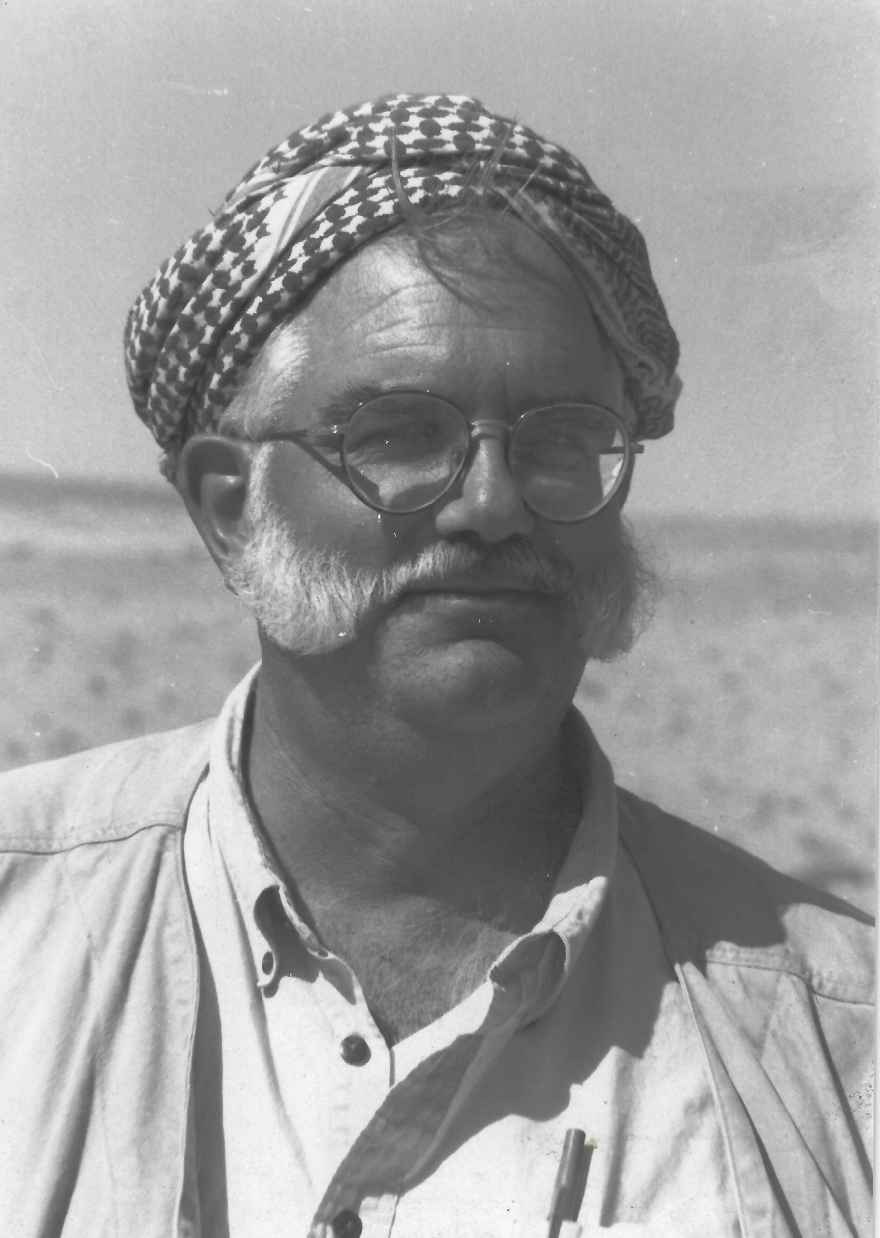Donald Whitcomb, renowned scholar of Islamic archaeology, 1944‒2024

The following was published in UChicago News on April 17, 2024.
By Sara Patterson
Donald Whitcomb was a pioneering scholar in the field of Islamic archaeology, who investigated its history through numerous excavations across the Middle East while also training generations of University of Chicago students in archaeological fieldwork.
A member of the University of Chicago community for more than four decades, he was also a trusted mentor who created master’s and doctoral programs in Islamic archaeology at UChicago. Whitcomb, PhD’79, a research associate at the Institute for the Study of Ancient Cultures (ISAC) and associate professor at the Department of Near Eastern Languages and Civilizations (NELC), died on Feb. 8 in Chicago at age 79.
“It is rare today that someone is as transformative for an academic field as Donald Whitcomb was during his career,” wrote Tasha Vorderstrasse, manager of the Continuing Education Program for ISAC, who was also Whitcomb’s former student. “He redefined the discipline of Islamic archaeology and established what it was moving forward into the 21st century. The field of Islamic archaeology would not be what is today without him and his scholarship.”
Whitcomb demonstrated how the material culture is an essential part of medieval studies. His groundbreaking scholarship provided evidence for the development of Islamic societies and economies through unearthing, studying and analyzing artifacts that could be compared to relevant textual sources. In 2018, he received the Middle East Medievalists Lifetime Achievement Award for his transformative fieldwork in historic Islamic archaeology.
“Like other fields that grew in the Oriental Institute [now ISAC] from comparative analyses of different sites and regions, this new research field illuminates processes of adaptation and development that define this part of the Middle East,” Whitcomb said at the time. “Fieldwork is used to elucidate the rise of Near Eastern civilization through tracing the cities and states, and their religions, especially their relationship to the Biblical tradition. Modern archaeology is very different from past archaeology because we leave what we found for museums in the country of origin to showcase.”
Excavating Islamic sites throughout the Middle East, Whitcomb completed extensive archaeological fieldwork, including at Quseir al-Qadim on the Egyptian Red Sea coast, Luxor on the East Bank of the Nile River in Egypt, the Port of Aqaba in Jordan and Khirbet al-Mafjar in Jericho in the Palestine territories with permission of the Palestine authorities. Most notably, his 1992 discovery of a hoard of 32 rare gold coins in Aqaba on the Red Sea in Jordan made headlines around the world.
“Don was a brilliant scholar and founded the study of Islamic Archaeology as a discipline in the U.S.,” said A. Asa Eger, professor at the University of North Carolina, Greensboro, who was also Whitcomb’s former student. “He was also a devoted mentor, shaping my career and intellectual maturity. I am proud to continue, even in just part of his expansive legacy.”
In addition to his fieldwork, Whitcomb wrote eight books about excavations and museum exhibits, as well as many articles on topics from excavations to interesting objects to theoretical work about the implications of certain sites for the history and culture of Islamic archaeology.
“There is a growing awareness that Islamic materials provide connections to the past, showing the continuation of most ancient accomplishments unique to the Near East,” said Whitcomb in an article about his MEM Lifetime Achievement Award. “Alternatively, the Islamic archaeology links medieval remains to the present, making archaeology relevant and significant to modern Middle Eastern studies.”
Whitcomb was born on April 27, 1944, in Elizabeth, N.J. After graduating from Emory University with bachelor’s degree in art history in 1966, he joined the Peace Corps and taught English in Bushire, Iran. After returning to the U.S., Whitcomb earned a master’s degree in anthropology from the University of Georgia in 1971 and a doctoral degree in Islamic archaeology from the Department of Anthropology at UChicago in 1979.
From 1981 to 2024, he was a research associate at ISAC and associate professor at the Department of NELC. In addition to his fieldwork and teaching, Whitcomb also served as a research fellow at the American Center for Oriental Research in Amman, Jordan; the American Research Center in Cairo, Egypt; the Smithsonian Institution; the Field Museum of Natural History; and the Metropolitan Museum of Art.
“Don inspired me to pursue a Ph.D. in Islamic archaeology,” said Veronica Morriss, research associate at the Institute of Nautical Archaeology, who was also Whitcomb’s former student. “Being his student opened a lot of doors for me because he was so well-loved and respected within the close-knit field. He was a bottomless source for archaeological information, as well as anecdotes about the history of the field itself. We spent a lot of time laughing together; I think I will miss that most.”
According to Whitcomb’s family, he loved to explore, be outdoors and spend time with his family. He enjoyed riding tractors, barbecues at his family farm in Indiana, and Saturday morning soccer games. Whitcomb liked reading, especially sitting in the garden with a good book.
His survivors include his wife of 48 years, Janet H. Johnson, the Morton D. Hull Distinguished Service Professor Emerita in the Department of NELC; his two children, John and Felicia; and his brother David and his wife, Jan, and their children, Melissa and Michelle.
A memorial service is planned for 3 p.m. May 2 at Bond Chapel, 1025 58th St. in Chicago. A reception will follow at the ISAC Museum, 1155 58th St. in Chicago.
